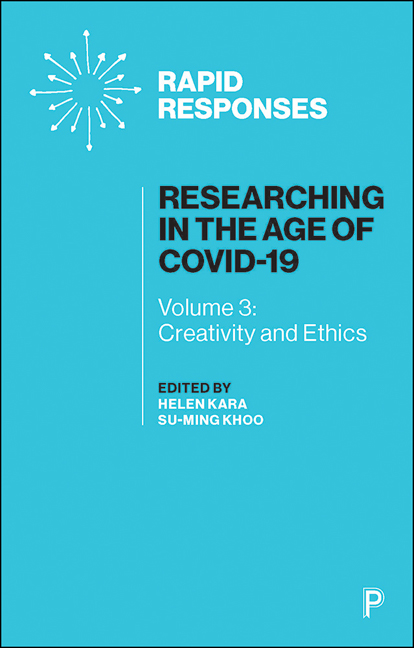11 - Doing Design Research with Youth at/from the Margins in Pandemic Times: Challenges, Inequalities and Possibilities
Published online by Cambridge University Press: 23 March 2021
Summary
Context: SEEYouth project
SEEYouth is a research project about youth from/at the margins carried out by an international group of scholars from the University of São Paulo and the University of the State of São Paulo (both in Brazil), University of Lapland (Finland), University of Leeds (United Kingdom) and Université de Montreal (Canada). Focusing on how to improve vulnerable youths’ and young adults’ lives, this project aims to use artsbased and design methods to give voice and help them to empower themselves through trans-Atlantic mirroring cases from Brazil and Finland.
To be held from January 2020 until December 2021, the SEEYouth project suffered a deep impact in its very first months, when the covid-19 pandemic crisis started worldwide. In Brazil, the first case was confirmed on 26 February 2020, in São Paulo. The kick-off research meeting was planned to be held in Finland by the end of March, but due to restrictions imposed by the pandemic, the country closed its borders in the second week of the month. In Brazil, social isolation was determined at the same time. Thus, since its beginning, all research meetings have been carried out online through Skype® for group meetings and Miro® for visual collaboration in a digital whiteboard.
COOPAMARE
Led by the University of São Paulo research team, the SEEYouth Work Package 1 focuses on former homeless young adults’ history of life that could inspire the youth from/at the margins in Finland. These adults improved their lives by working at a cooperative called COOPAMARE [Cooperativa dos Catadores Autônomos de Papel, Aparas e Materiais Reaproveitáveis (Cooperative of Paper, Scrap and Reusable Materials Autonomous Pickers, in a loose translation)], which we will explain briefly.
In Brazil, it is estimated that over 220,000 people are homeless (Natalino, 2020). In São Paulo alone, there are nearly 25,000 people living on the streets (SECOM, 2020). Most of them do not have access to drinking water, sanitation, nutrition, health care or education. The city is also facing new challenges with the increasing number of immigrants and refugees living on the streets.
COOPAMARE is the oldest and most relevant operating waste pickers association in Brazil. It has achieved international recognition for its experience in the field of solid waste management and advocating for the rights of populations in a state of social vulnerability.
- Type
- Chapter
- Information
- Researching in the Age of COVID-19Volume III: Creativity and Ethics, pp. 112 - 119Publisher: Bristol University PressPrint publication year: 2020

